Emperors of Rome | The Long Year, A.D. 69 (Lecture 17)
Lecture 17: Given that Nero had eliminated most of his male relatives, left no heirs, and made no provisions for a successor, his death threw open the matter of the succession.
Initially, the leader of the Spanish rebellion, Servius Sulpicius Galba, was the accepted replacement. But the sole basis of his regime was his soldiers’ support, and when they turned against him in January 69, he was murdered. Thus began the so-called Year of the Four Emperors. Nero’s friend Otho attempted to take Galba’s place, but he was immediately challenged by the legions on the Rhine, who wanted their commander, Vitellius, installed as emperor. The German legions invaded Italy and toppled Otho in April. In Syria- Palestine, a vicious war against Jewish rebels was coming to a climax, and the troops there proclaimed their general, Vespasian. Another invasion of Italy followed, Vitellius was removed, and Vespasian became emperor in December 69. These events illuminated a longconcealed secret of power: Emperors depended on the army for their position.
Essential Reading:
Cassius Dio, Roman History, book 64.
Plutarch, Galba, Otho.
Suetonius, Galba, Otho, Vitellius.
Tacitus, Histories.
Supplementary Reading:
DIR, “Galba,” “Otho,” “Vitellius.”
Morgan, 69 A.D.: The Year of the Four Emperors, pp. 1–169.
Murison, Galba, Otho, and Vitellius: Careers and Controversies.
-
 31:04
31:04
The Great Courses
1 year agoEmperors of Rome | The Early Years of Tiberius (Lecture 8)
52 -
 30:06
30:06
The Great Courses
1 year agoEmperors of Rome | Emperor and Empire (Lecture 28)
55 -
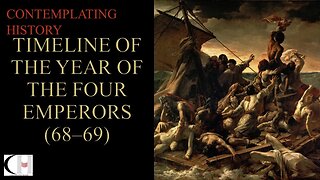 2:46
2:46
Contemplating History
1 year agoTIMELINE OF THE YEAR OF 4 EMPERORS (WITH NARRATION)
20 -
 8:50
8:50
Knowledge Hack Channel
1 year agoHistory of the Roman empire in 8 minutes
34 -
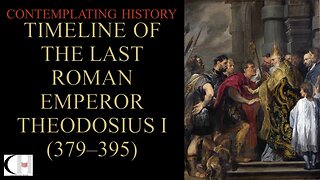 4:12
4:12
Contemplating History
1 year agoTIMELINE OF THEODOSIUS I LIFE AS THE FINAL RULER OF A UNTED ROMAN EMPIRE (WITH NARRATION)
28 -
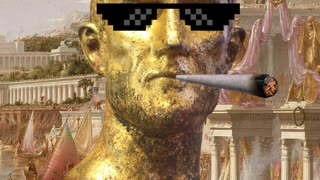 0:57
0:57
Maiorianus
1 year agoWho was the best emperor of Rome?
431 -
 8:18
8:18
ilijavvv
1 year ago60+ Powerful Qoutes from Roman Emperors!
12 -
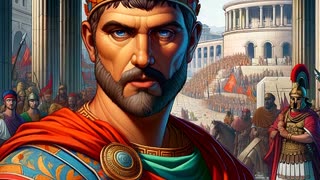 0:59
0:59
The Historical Conquest Channel
4 months agoEmperor Decius Tells His Story Serving Rome
7 -
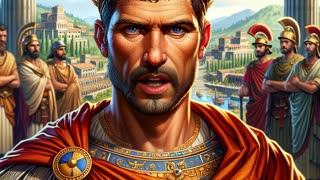 0:59
0:59
The Historical Conquest Channel
4 months agoEmperor Decius Tells His Story Serving Rome
13 -
 0:59
0:59
Maiorianus
1 year agoMeet one of the most underrated Roman Emperors: Claudius II.
53